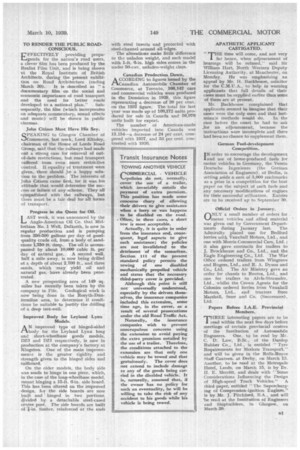Transit Insurance Notes
Page 35

If you've noticed an error in this article please click here to report it so we can fix it.
TOWING ANOTHER VEHICLE
rOMMERCIAL VEHICLE I....policies do not, normally, covet the use of a trailer, which invariably entails the payment of extra premium. This position has made some concerns chary of allowing their drivers to give assistance when a lorry or van happens to bedisabled on the road. . Often, in these cases, a short tow is most acceptable.
Actually, it is quite in order from the insurance and, consequent, legal aspects to give such assistance; the policies are not invalidated to the detriment of the samaritan. Section 111 of the present standard policy permits the towing of one disabled mechanically propelled vehicle and states that the necessary third-party cover is provided.
Although this point is still not universally understood, especially by the drivers themselves, the insurance companies included this extension, some time ago, in the cover, as a result of several prosecutions under the old Road Traffic Act.
Naturally, the insurance companies wish to prevent unscrupulous concerns using the extension to avoid paying the extra premium entailed by the use of a trailer. Therefore, the conditions attached to the extension are that only one 'vehicle may be lowed and that gratuitously. The cover does not extend to include damage to any of the goods being carried in the disabled vehicle. It is, naturally, assumed that, if the owner has no policy for such an eventuality, he will be willing to take the risk of any accident to his goods while his vehicle is being towed.




























































































